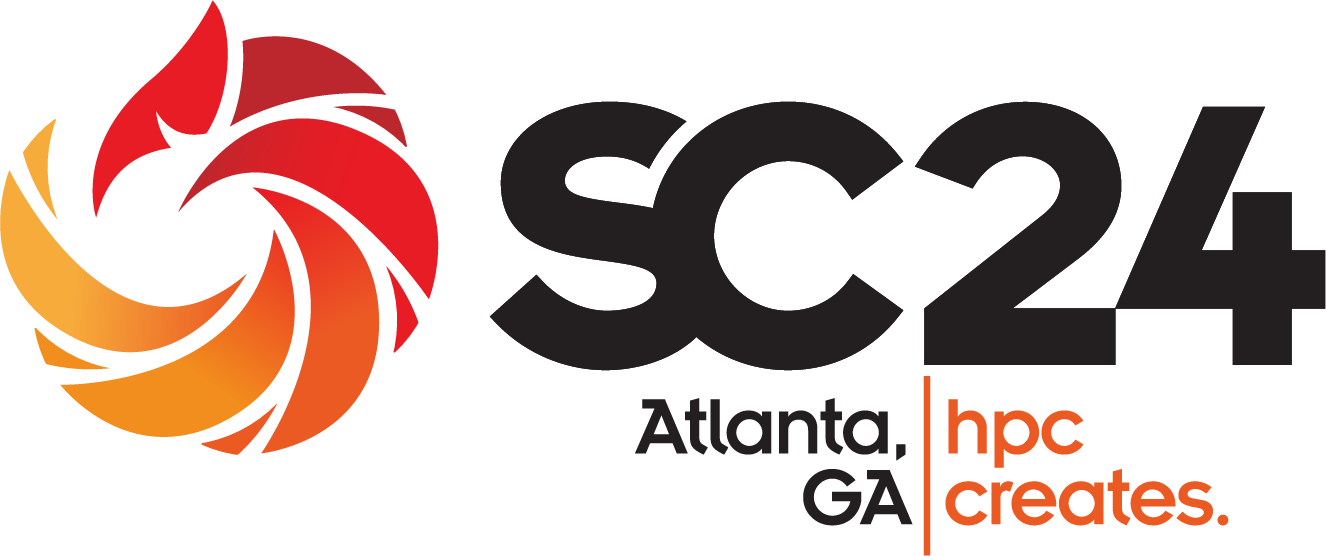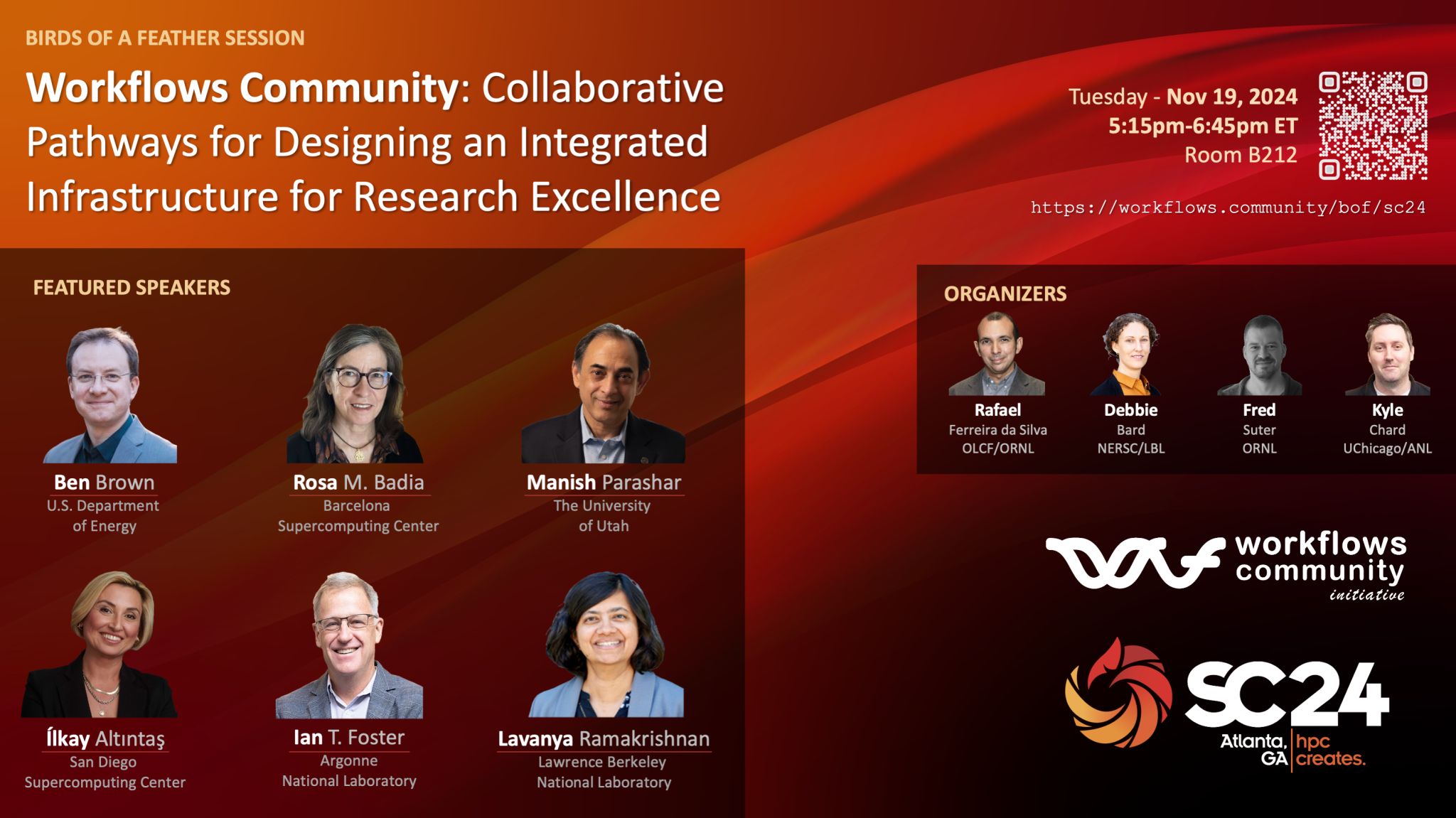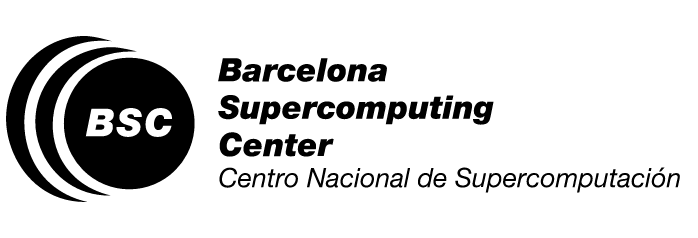
Collaborative Pathways for Designing an Integrated Infrastructure for Research Excellence
SC24 BoF
Tuesday - Nov 19, 2024
5:15pm-6:45pm ET
Room B212
In modern science, integrating scientific workflows, especially those involving AI and spanning multiple facilities, is paramount. AI workflows, leveraging machine learning and data analytics, are crucial for processing and interpreting vast amounts of data, driving unprecedented breakthroughs. Multi-facility workflows have expanded the horizons of scientific research by enabling the seamless integration of computational resources, data, and experiments across different locations, fostering collaboration and resource sharing.
The inaugural BoF session at SC22 focused on integrating HPC and AI workflows. Building on this, the second BoF at SC23 gathered the Workflows Community to explore challenges, opportunities, and future pathways for continuum and multi-facility workflows. Scientists provided insights into domain-specific challenges, discussing coordination among computing and experimental facilities, metadata tracking, co-design of experiment facilities, task standardization, edge-to-cloud data exchange, adaptive compression, and defining common workflow concepts. These sessions highlighted the importance of seamless integration across cloud-based data pipelines, multi-facility instruments, and HPC infrastructures. The enthusiasm and feedback underscored the need for deeper exploration of continuum and multi-facility workflows, critical for the resilience and real-time demands of modern scientific workflows.
In this BoF session, we will deepen the discourse initiated during the previous BoF sessions and elevate these discussions by incorporating a wider array of perspectives, including those of scientists who develop and utilize these workflow systems within their specific domains. By examining the challenges and opportunities within multi-facility workflows, the session will explore themes such as near real-time processing and integration of data from multiple sources and further discuss the topics of coordination among different computing and experimental facilities, and co-design of experiment facilities. This initiative is motivated by the need to address the continuum of workflows that demand uninterrupted computing access and multi-facility workflows that enhance resilience and efficiency across distributed environments.

Agenda
-
5:15pm-5:20pm — Opening Remarks
Rafael Ferreira da Silva — Oak Ridge Leadership Computing Facility (OLCF)
Debbie Bard — National Energy Research Scientific Computing Center (NERSC)
Fred Suter — Oak Ridge National Laboratory (ORNL)
Kyle Chard — University of Chicago
-
5:20pm-6:20pm — Lightning talks: Collaborative Pathways for Designing an Integrated
Infrastructure for Research Excellence
Advancing DOE's Integrated Research Infrastructure
Ben Brown, U.S. Department of Energy (DOE)Evolving HP+AI workflows for the needs of Digital Twins in Science and Industry
Rosa M. Badia, Barcelona Supercomputing Center (BSC)TBA
Manish Parashar, University of UtahAchieving Seamless Integration for Next-Generations Scientific Workflows
Lavanya Ramakrishnan, Lawrence Berkeley National Laboratory (LBNL)TBA
Ian T. Foster, Argonne National Laboratory (ANL)A Use-Inspired Approach to Bridge the Data Gaps for AI-Integrated Research and Education Workflows
İlkay Altıntaş, San Diego Supercomputing Center (SDSC) -
6:20pm-6:45pm — Interactive Activity








